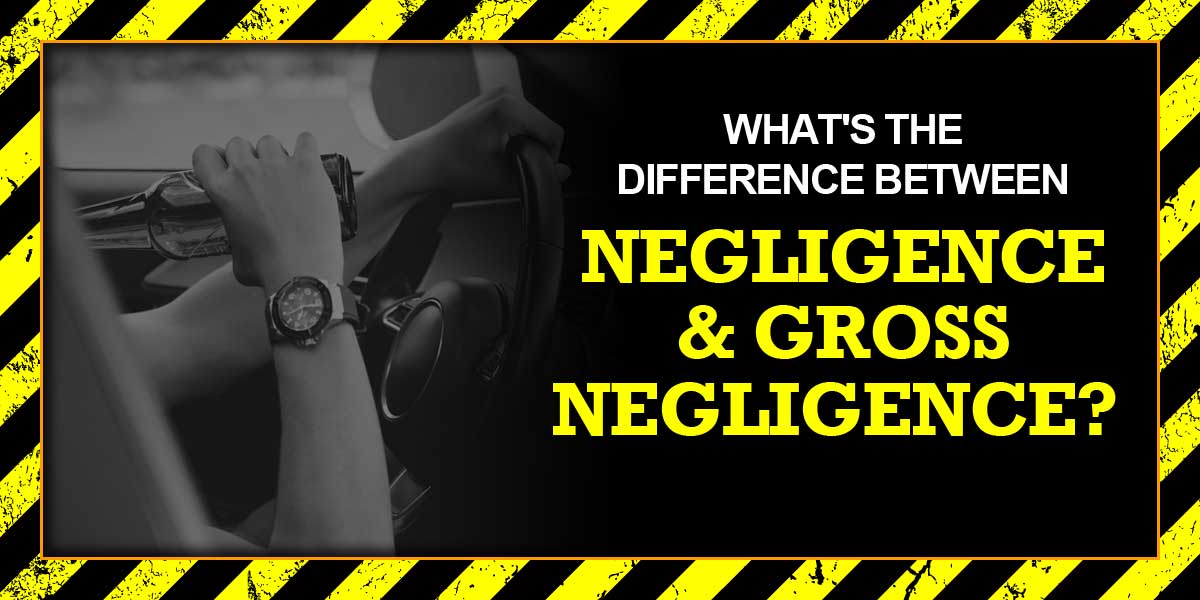When someone’s careless or reckless behavior causes you harm, you may have a legal claim under personal injury law. The severity of the misconduct can impact the strength of your claim. The two major terms to understand are “negligence” and “gross negligence.”
What is Negligence?
Negligence, also called ordinary negligence, is the most common basis for personal injury cases. It means someone failed to act with the level of care a reasonable person would exercise in the same situation. To prove negligence, you must show:
- Duty of Care: The other person owed you a duty to act reasonably. (Example: Drivers owe a duty of care to other drivers, pedestrians, and cyclists).
- Breach of Duty: The person’s actions fell short of this duty. (Example: A driver running a red light).
- Causation: Their breach of duty directly caused your injuries.
- Damages: You suffered losses (medical bills, lost income, pain and suffering, etc.).
What is Gross Negligence?
Gross negligence is much more severe. It involves a reckless disregard for the safety of others or an extreme indifference to the consequences of one’s actions. While negligence can be a mistake, gross negligence shows a conscious disregard for potential harm.
Examples of Gross Negligence in New York
- Driving while intoxicated
- A surgeon operating under the influence of drugs or alcohol
- A nursing home failing to provide basic necessities like food and water to a resident
Why the Distinction Matters
Proving gross negligence can benefit your case in several ways:
- Punitive Damages: In addition to covering your losses (compensatory damages), the court may award punitive damages in gross negligence cases. These are meant to punish the wrongdoer and deter similar behavior.
- Insurance implications: Some insurance policies may not cover gross negligence. This means the defendant might be personally liable for a larger portion of the damages.
Do You Have a Negligence or Gross Negligence Case?
If you’ve been injured in New York due to someone else’s actions, it’s essential to consult with an experienced personal injury attorney. They can assess the facts of your case and determine whether it involves negligence, gross negligence, or potentially even intentional wrongdoing.
